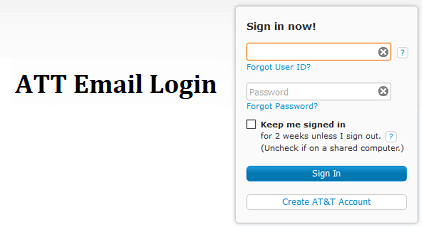
There are 28 member countries in the European Union (EU). The prime purpose of the EU is to promote peace, values, and freedom within the borders. Apart from this, trade and technological supremacy are other key goals of this union. Every now and then, European countries become trade partners with other countries. This way, they share a lot of data after becoming partners. Privacy is one of the major concerns of the modern-day world. Every country has privacy laws that ensure this important aspect. But European Commission grants data adequacy status to the countries outside European Economic Area (EEA).
It is a data protection law that enables a country to secure its personal data more effectively. At the same time, this law is more effective than the European Law. UK is the latest exit from the European Union. The country left the EU on February 1st 2020. After the exit, UK completed its transition period till December 31st 2020. In this period, both EU, and the UK negotiated about a future trade relationship. Data adequacy was one key aspect of this period. Under this status, countries can share any information freely without any safeguards.
This article by The Academic Papers UK, a best dissertation writing service company aims to discuss Data adequacy and why it is important. It will also discuss UK’s status in this regard. So let’s discuss this in detail;
Data Adequacy Rule and the UK:
Before discussing data adequacy rule for the UK, let’s discuss an important question. Why does the UK need such laws after its exit from the EU? There are several reasons that can justify this stance of the UK. The UK economy contributes almost 3% of the world’s GDP. Around 11.5% of global data passes through the UK. The country also shares around 75% of this information with the European Union. In short, data protection is a key deciding factor for future relationships between the EU, and the UK. Apart from economic data, the country shares a wide range of information in every aspect. These are the reasons that help in justifying data protection status for the UK under GDPR rules.
How Does the EU Protect Personal Data?
It is important to define personal data before discussing how the EU protects it. According to the EU, personal data is a type of information about an identifiable person. This definition covers all the aspects of a person, like his name, and home address. It also covers his financial information like bank records and health. Protecting such information is the fundamental right of EU Commission. So here comes the most important question. How does the EU protect such information? General Data Protection Regulation (GDPR) helps in ensuring data protection. This law has been effective since May 2018. Since then, it has been ensuring data protection across the European Economic Area. GDPR applies several extra rules when it comes to law enforcement. It restricts individuals to erase their personal data, or information. Law enforcement agencies can use this information for data protection breach too. The UK meets data adequacy criteria under GDPR 2018 Act.
Data Adequacy for the UK before Exiting the European Union:
When UK was a part of the European Union, it followed common rules for data protection. The country was also following UK Data Protection Authority Rules. It was following the Information Commissioner Office (ICO) as well. UK was also following data guidelines from the European Data Protection Board (EDPB). The UK freely shared data with the union as a single state. All these legal bodies were working under the same framework for data protection. During the transition period, business took place with no specific changes. But both UK and the EU followed the Trade and Cooperation Agreement (TCA). Both parties issued a joint statement for business, and data protection. The term used for this agreement was that of bridge mechanism. There was a further six-month extension for trade as per the bridge mechanism.
Current Data Adequacy Rule in the UK:
On June 28th 2021, the European Commission adopted two data adequacy rules for the UK. One rule is under the General Data Protection Regulation. Whereas the second rule is under the Law Enforcement Directive. Both rules help in implementing EU-UK Trade, and Cooperation Agreement in a correct way. Apart from this, both the EU and the UK aim to share personal data with no major changes. Both parties agree to share this information for judicial matters. A sunset clause is one of the most important factors of these rules. This is because it provides strong instructions for future divergences regarding data protection. But under the sunset clause, both rules are effective for four years.
The UK agrees to exercise its data protection rules in the same way it was exercising before the exit. The country aims to incorporate the principles of GDRP and LED into its legal system. Data protection rules of the UK provide strong guidelines for accessing personal data. The country agrees to share personal data with intelligence agencies. But agencies including news agencies have to provide proper authorisation, and justification for this. So under GDPR and LED rules, the UK started its new regime. There is another clause under these data adequacy rules. It states that the UK government will make new data-sharing rules for countries other than EEA.
Conclusion
Data Adequacy is a data protection law. According to this law, the country controls its personal data more effectively. Adequacy status is given to countries other than European Economic Area. The EU controls its data under the GDPR rule 2018. After UK’s exclusion from the European Union, the country fulfils GDPR requirements. After the exit, UK has to complete a transition period. After this period, the EU will grant adequacy status to the UK. The UK has two data protection rules under GDPR, and LED for four years. Apart from this, it has its own data protection rule. According to these adequacy rules, the UK aims to share personal information in the same way that EU does.






